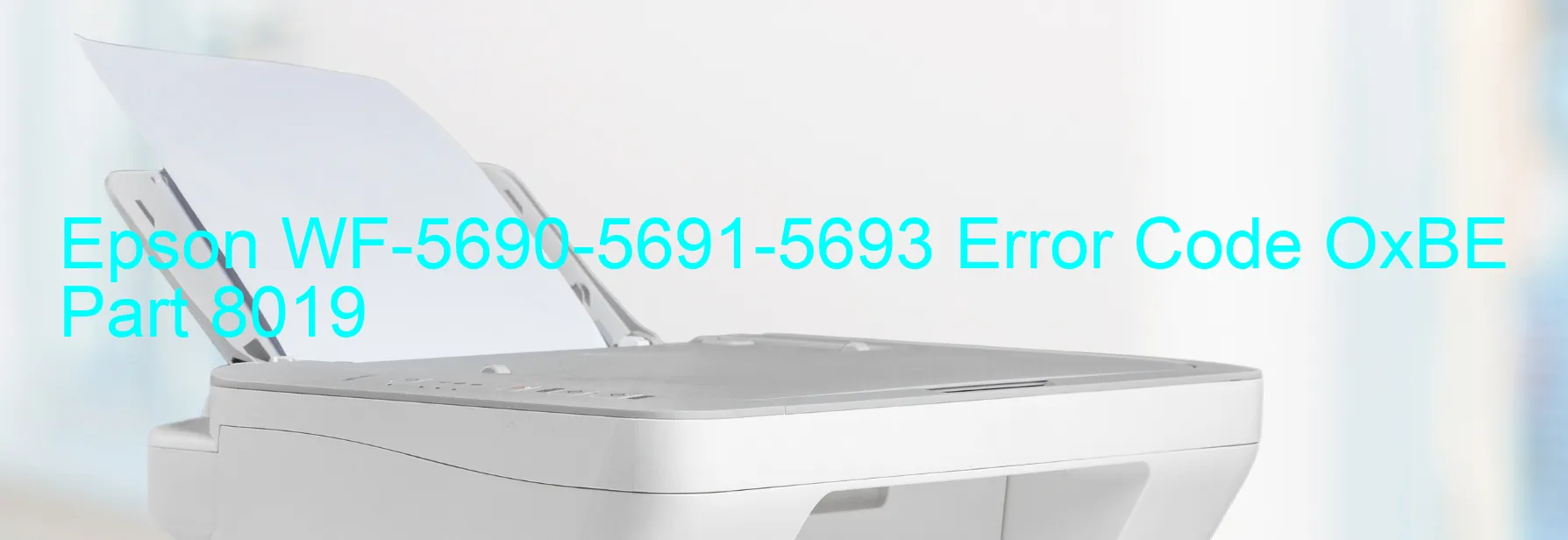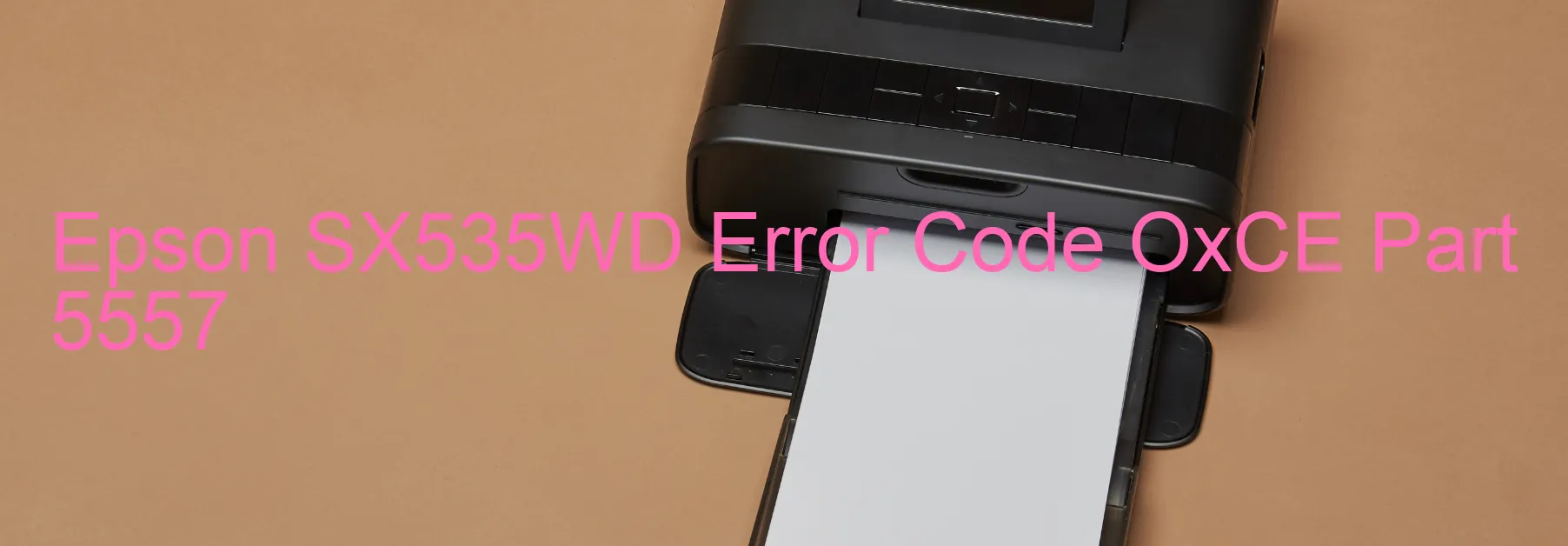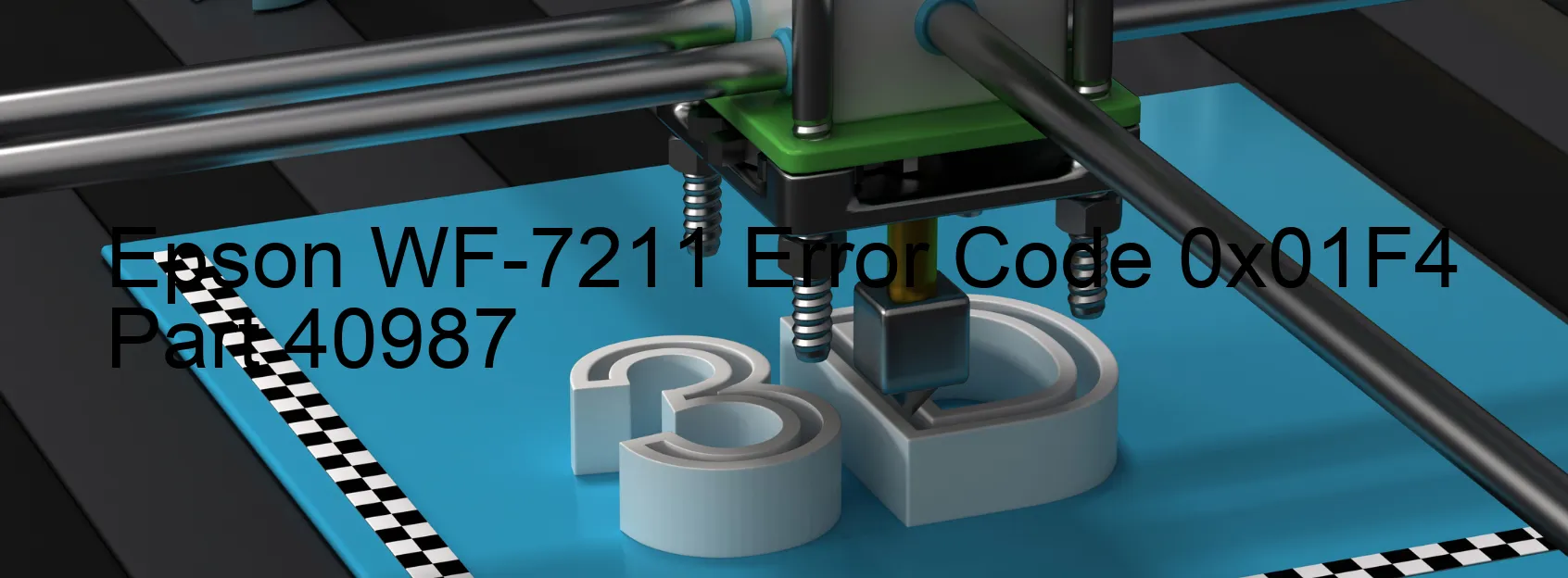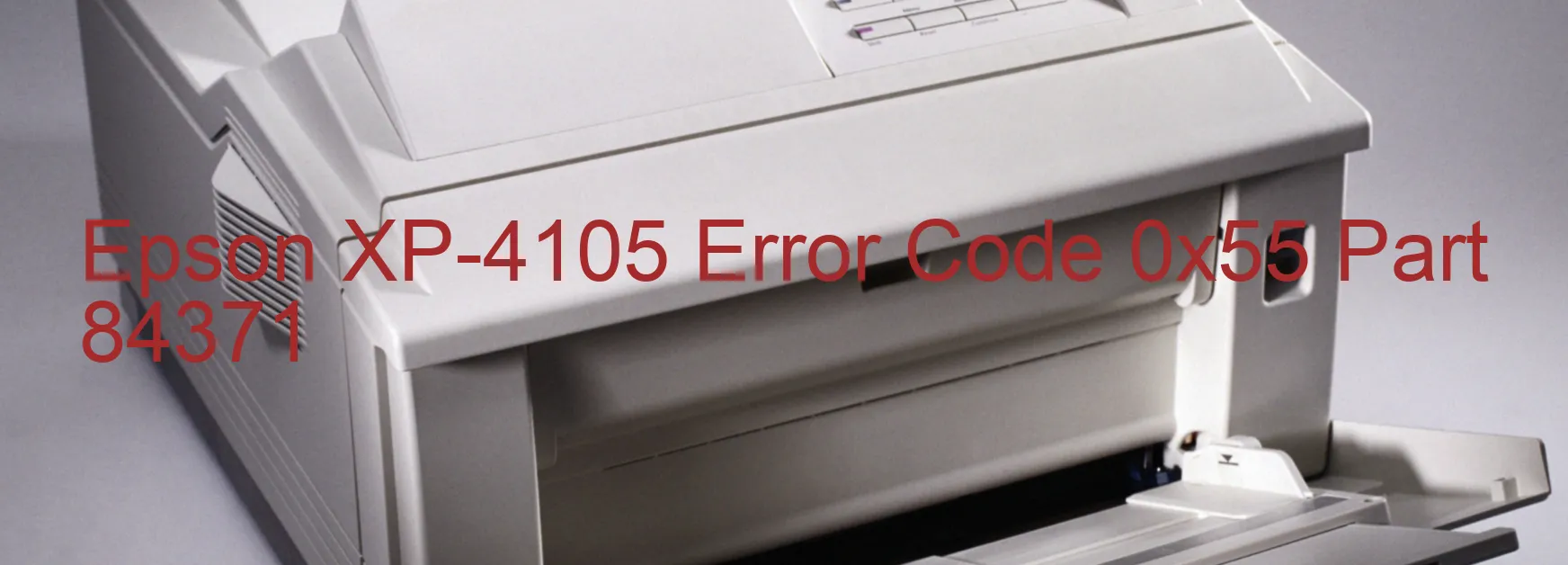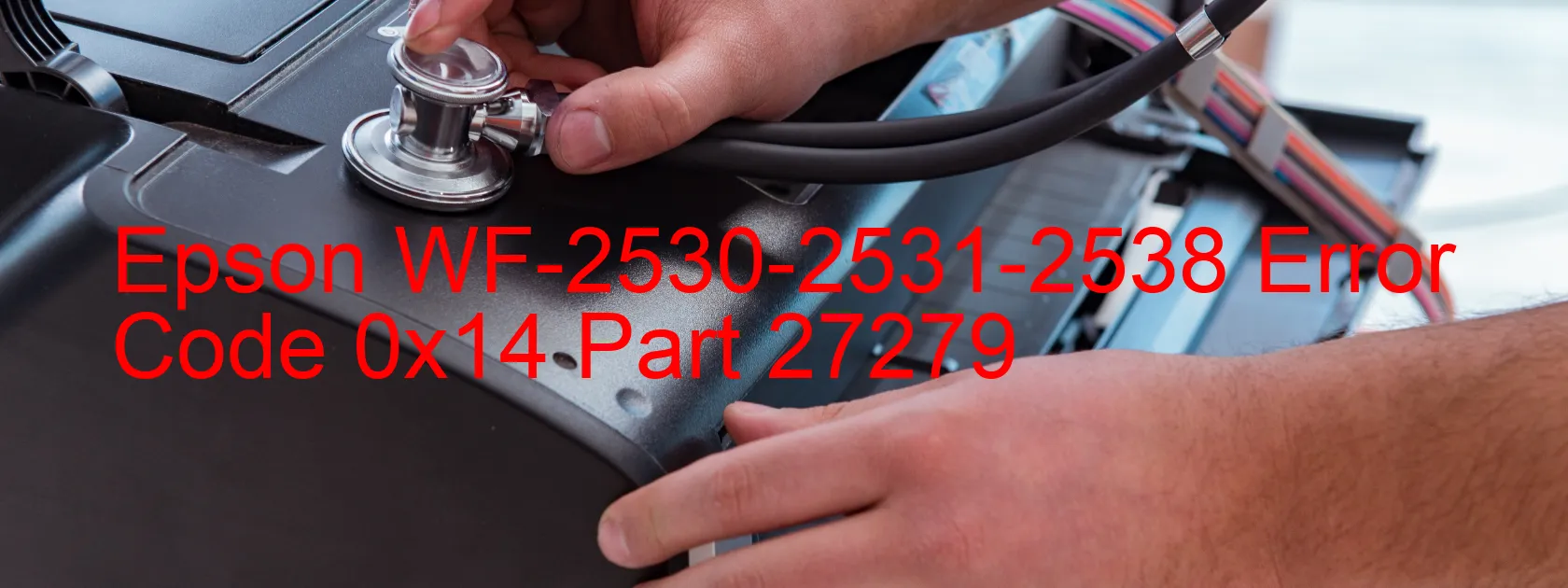Epson WP-4595 Error 0x1 A

The Epson WP-4595 printer is a cutting-edge device designed to enhance productivity in your office. However, encountering an error code, such as 0x1 A Display, can be frustrating and disrupt your workflow. This particular error code indicates an issue related to the ASF (Automatic Sheet Feeder) load position, primarily caused by various factors including encoder failure, motor failure, mechanism overload, cable or FFC (Flexible Flat Cable) disconnection.
One possible cause of the error is an encoder failure. The encoder is responsible for tracking the position of the ASF, ensuring proper sheet feeding. A malfunction in the encoder can result in incorrect load position detection, leading to error code 0x1 A Display. To troubleshoot this issue, check if there are any obstructions within the ASF, and clean the encoder sensor carefully.
Another potential cause is a motor failure. The motor is responsible for moving the ASF mechanism and ensuring smooth sheet feed. If the motor fails, it can cause an excess load error and trigger the error code 0x1 A Display. Inspect the motor for any visible damage, and consider replacing it if necessary.
In some cases, a mechanism overload can also trigger this error code. This occurs when the ASF mechanism becomes overloaded due to excessive sheets or other obstructions. Carefully remove any jammed sheets or debris from the ASF, ensuring that it operates smoothly.
Lastly, a cable or FFC disconnection can cause the error code 0x1 A Display. Check all cables and FFC connections within the printer, ensuring they are secure and properly connected.
If you still encounter the error code after attempting these troubleshooting steps, it is advisable to contact Epson customer support or consult a professional technician for further assistance.
| Printer Model | Epson WP-4595 |
| Error Code | 0x1 A |
| Display on | PRINTER |
| Description and troubleshooting | ASF LOAD POSITION excess load error. Encoder failure. Motor failure. Mechanism overload. Cable or FFC disconnection. |
